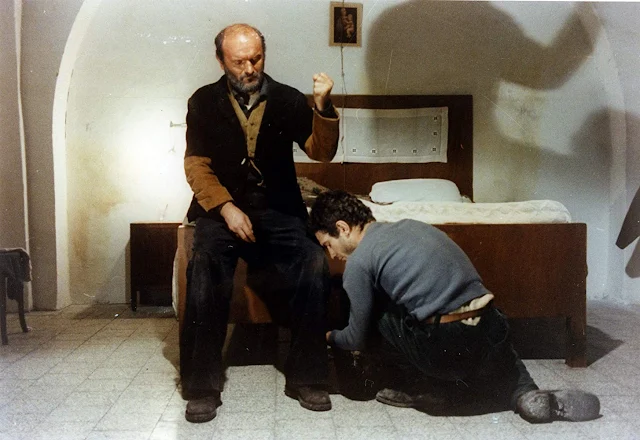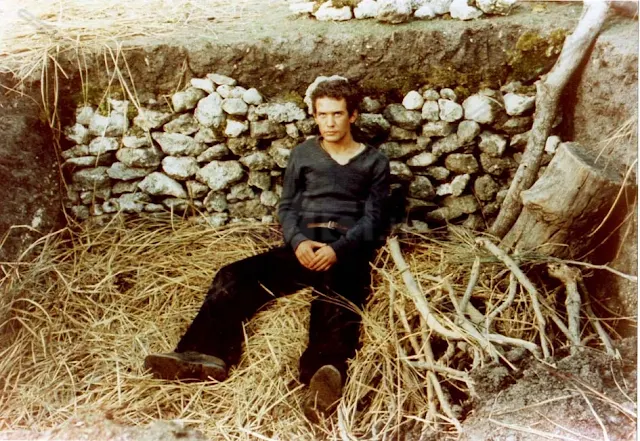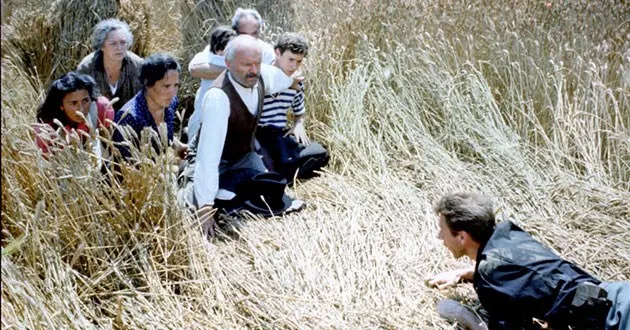 |
| Omero Antonutti and Sonsoles Aranguren in El Sur |
The ending of El Sur feels right: After her father's suicide, Estrella (Icíar Bollaín) falls ills and to recover goes to stay with her grandmother in el sur, the southern Spain that she has never seen, from which her father exiled himself because his Republican sympathies were at odds with the Nationalism of his father during the Spanish Civil War. We've seen how Estrella has imagined the South as warmly antithetical to the often chilly and sometimes bleak environs of Madrid where she and her parents live. She is also tantalized by the mysterious past of her father (Omero Antonutti), who once loved a woman who had a brief film career under the name Irene Rios (Aurore Clément), and who made a phone call to a number in the South shortly before he killed himself. Do we need to follow Estrella to the South to know that other mysteries will open themselves to her? And yet writer-director Victor Erice wanted to do so: He planned another 90 minutes to El Sur that would show us what Estrella did and found there, but was stymied by his producer's insistence that there was no money to film it. The remarkable thing is that the film as stands feels complete. What feels right about the ending of the film that we now have is that it's a part of what we know about Estrella: her solitary pursuit of things of mysterious things. This is a film about awakening and illumination: It begins with the dawn's light gradually penetrating the sleeping Estrella's room, and windows play a significant role in creating the film's symbolic texture. The scenes from the movie in which Irene Rios stars provide another kind of window. The most brilliant sequence in El Sur is the final meal Estrella shares with her father in a hotel dining room illuminated by high windows. She and her father are the only diners in this space, but a wedding party is taking place in an adjacent room whose windowed doors are covered by curtains. At one point Estrella goes to the doors and peeks into the room, whose music echoes that played at the party after her first communion, when the younger Estrella (Sonsoles Aranguren), dressed in white "like a bride," danced with her father. El Sur has the wholeness we expect of good films, and though we may wish that Erice had been allowed to give us more, we can be content with what we have.





















